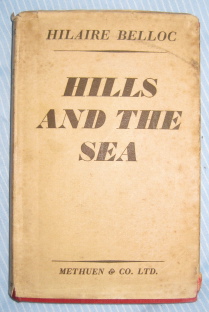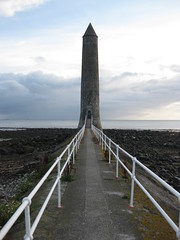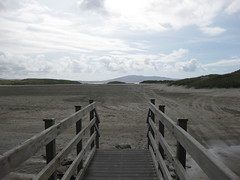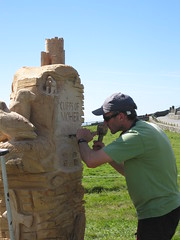Expert witnesses often testify in court cases whether on DNA evidence, IT security or blood splatter patterns. However, in the days of Web 2.0 who is the ‘expert’ witness? Would then true Web 2.0 court submit evidence to public comments, maybe, like the Viking Thing or Wild West lynch mob, a vote of the masses using Facebook ‘Like’ could determine guilt or innocence.
However, it will be a conventional judge, not the justice of social networks, who will adjudicate if the hoteliers threatening to sue TripAdvisor do indeed bring the case to court. When TripAdvisor seeks to defend its case, they will not rely on crowd-sourced legal opinions, but lawyers whose advice is trusted because they are trained, examined and experienced and who are held responsible for their advice. What is at stake is precisely the fact that TripAdvisor’s own site has none of these characteristics.
This may well, like the Shetland newspaper case in the 1990s, become a critical precedent for many crowd-sourced sites and so is something we should all be watching.
Unlike Wikipedia or legal advice itself, ‘expertise’ is not the key issue in the case of TripAdvisior: every hotel guest is in a way the best expert as to their own experience. However, how is the reader to know that the reviews posted are really by disgruntled guests rather than business rivals? In science we are expected to declare sources of research funding, so that the reader can make judgements on the reliability of evidence funded by the tobacco or oil industry or indeed the burgeoning renewables sector. Those who flout these conventions and rules may expect their papers to be withdrawn and their careers to flounder. Similarly if I make a defamatory public statement about friend, colleague or public figure, then not only can the reliability of my words be determined by my own reputation for trustworthiness, but if my words turn out to be knowingly or culpably false and damaging then I can be sued for libel. In the case of TripAdvisor there are none of the checks and balances of science or the law and yet the impact on individual hoteliers can make or break their business. Who is responsible for damage caused by any untrue or malicious reviews posted on the site: the anonymous ‘crowd’ or TripAdvisor?
Of course users of review sites are not stupid, they know (or do they) that anonymous reviews should be taken with a pinch of salt. My guess is that a crucial aspect of the case may be the extent to which TripAdvisor itself appears to lend credence to the reviews it publishes. Indeed every page of TripAdvisior is headed with their strap line “World’s most trusted travel advice™”.

At the top of the home page there is also the phrase “Find Hotels Travelers Trust” and further down, “Whether you prefer worldwide hotel chains or cozy boutique hotels, you’ll find real hotel reviews you can trust at TripAdvisor“. The former arguably puts the issue of trust back to the reviewers, but the latter is definitely TripAdvisor asserting to the trustworthiness of the reviews.

I think if I were in TripAdvisor I would be worried!
Issues of trust and reliability, provenance and responsibility are also going to be an important strand of the work I’ll be part of myself at Talis: how do we assess the authority of crowd-sourced material, how do we convey to users the level of reliability of the information they view, especially if it is ‘mashed’ from different sources, how do we track the provenance of information in order to be able to do this? Talis is interested because as a major provider and facilitator of open data, the reliability of the information it and its clients provide is a crucial part of that information — unreliable information is not information!
However, these issues are critical for everyone involved in the new web; if those of us engaged in research and practice in IT do not address these key problems then the courts will.
 I had forgotten it, but I can see it now, patterns upon light green woodchip ceiling paper, as clear as the sky and grass before me where I am sitting now, and mornings with tea from the Goblin Teasmade and Dad bringing up marmalade-laden toast cut in triangles before, workman-fashion, he sipped hot tea from the saucer.
I had forgotten it, but I can see it now, patterns upon light green woodchip ceiling paper, as clear as the sky and grass before me where I am sitting now, and mornings with tea from the Goblin Teasmade and Dad bringing up marmalade-laden toast cut in triangles before, workman-fashion, he sipped hot tea from the saucer.











